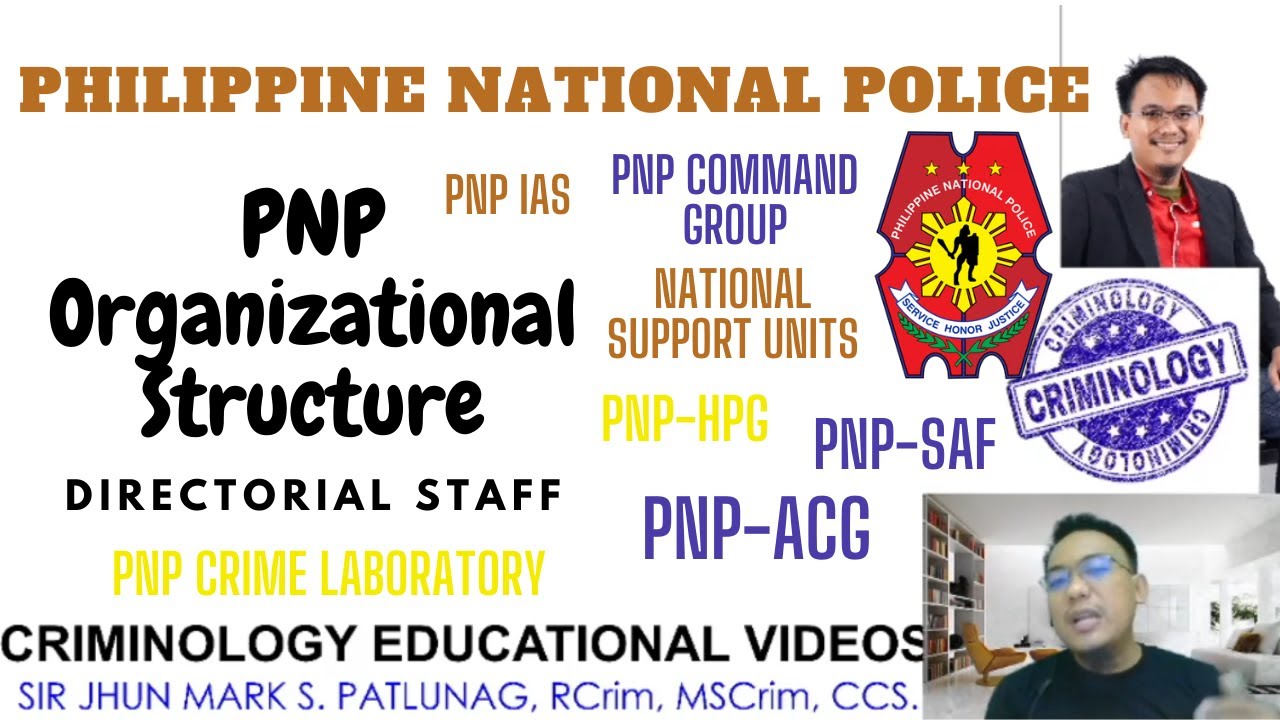4 CFLM 4TH EPISODE WITH PRV
Summary
TLDRThis episode delves into the nuances of self-leadership, distinguishing it from management and administration within the Philippine National Police's structure. It highlights the roles of administrators and managers, emphasizing their interdependence for organizational success. The script also explores the concepts of police personnel management and human relations, underscoring their significance in fostering a positive workplace that enhances productivity and service quality.
Takeaways
- 🌟 Self-leadership is the core of self-awareness, self-regulation, and self-motivation, which are essential for navigating life's journey and achieving one's full potential.
- 📊 Management is about achieving goals, using resources effectively, motivating people, and making decisions, focusing on the practical steps to reach targets.
- 🏛️ Administration supports the management process by creating systems, structures, and processes, focusing on rules, procedures, and resources that facilitate operations.
- 👮♂️ In the Philippine National Police (PNP), administrators and managers have distinct roles, with administrators providing the necessary support for managers to be successful.
- 🔍 The Directorate for Personnel and Records Management (DPRM) in the PNP is responsible for managing personnel records, promotions, and other administrative tasks.
- 🚚 The Directorate for Logistics manages the PNP's logistics system, including procurement, maintenance, and distribution of equipment and supplies.
- 💰 The Directorate for Finance oversees the PNP's budget, finance, accounting, and financial operations.
- 👥 Human relations is the study of how people interact, particularly in a work environment, focusing on individual behaviors, motivations, and their influence on group dynamics.
- 🔑 Key components of human relations include understanding individual differences, effective communication, motivation and teamwork, conflict management, and leadership and influence.
- 🛠️ Police personnel management involves strategies and practices for effectively managing the workforce in law enforcement agencies to ensure optimal performance and achievement of organizational goals.
- 🤝 The importance of human relations in the workplace includes improved employee morale, enhanced teamwork, reduced conflict, increased productivity, and improved customer service.
Q & A
What is the core of self-leadership according to the script?
-The core of self-leadership is self-awareness, self-regulation, and self-motivation, which together provide everything needed to navigate life's journey and achieve full potential.
What is the primary focus of management?
-The primary focus of management is achieving goals by using resources effectively, motivating people, and making decisions to get things done.
How does the script describe the role of administrators?
-Administrators are focused on creating the systems, structures, and processes that allow managers to do their job effectively, supporting the management process.
What is the difference between a manager and an administrator in the context of the Philippine National Police (PNP)?
-In the PNP, managers are responsible for planning, directing, and coordinating operational activities, while administrators provide the necessary support, such as creating systems and managing resources, to facilitate the work of managers.
What is the role of the Directorate for Personnel and Records Management (DPRM) in the PNP?
-The DPRM is responsible for managing personnel records, promotions, and other administrative tasks related to PNP personnel.
What is the role of the Directorate for Logistics in the PNP?
-The Directorate for Logistics manages the PNP's logistics system, including procurement, maintenance, and distribution of equipment and supplies.
What is the role of the Internal Affairs Service (IAS) in the PNP?
-The IAS investigates alleged misconduct by PNP personnel and promotes police discipline.
What is the difference between a leader and a manager as discussed in the script?
-A leader is responsible for inspiring, guiding, and motivating followers, while a manager ensures that tasks are completed efficiently. Both roles are essential for organizational success.
What are the key components of human relations in the workplace?
-The key components of human relations include understanding individual differences, effective communication, motivation and team collaboration, conflict management, and leadership and influence.
Why is human relations important in the workplace?
-Human relations is important because it improves employee morale, enhances teamwork, reduces conflict, increases productivity, and improves customer service, ultimately creating a positive and productive work environment.
What is the script's suggestion for the next assignment regarding leadership?
-The script suggests researching different types of leaders, comparing the findings with the topics discussed in the script, and adding personal comments in a reaction paper for further discussion.
Outlines

Dieser Bereich ist nur für Premium-Benutzer verfügbar. Bitte führen Sie ein Upgrade durch, um auf diesen Abschnitt zuzugreifen.
Upgrade durchführenMindmap

Dieser Bereich ist nur für Premium-Benutzer verfügbar. Bitte führen Sie ein Upgrade durch, um auf diesen Abschnitt zuzugreifen.
Upgrade durchführenKeywords

Dieser Bereich ist nur für Premium-Benutzer verfügbar. Bitte führen Sie ein Upgrade durch, um auf diesen Abschnitt zuzugreifen.
Upgrade durchführenHighlights

Dieser Bereich ist nur für Premium-Benutzer verfügbar. Bitte führen Sie ein Upgrade durch, um auf diesen Abschnitt zuzugreifen.
Upgrade durchführenTranscripts

Dieser Bereich ist nur für Premium-Benutzer verfügbar. Bitte führen Sie ein Upgrade durch, um auf diesen Abschnitt zuzugreifen.
Upgrade durchführen5.0 / 5 (0 votes)






